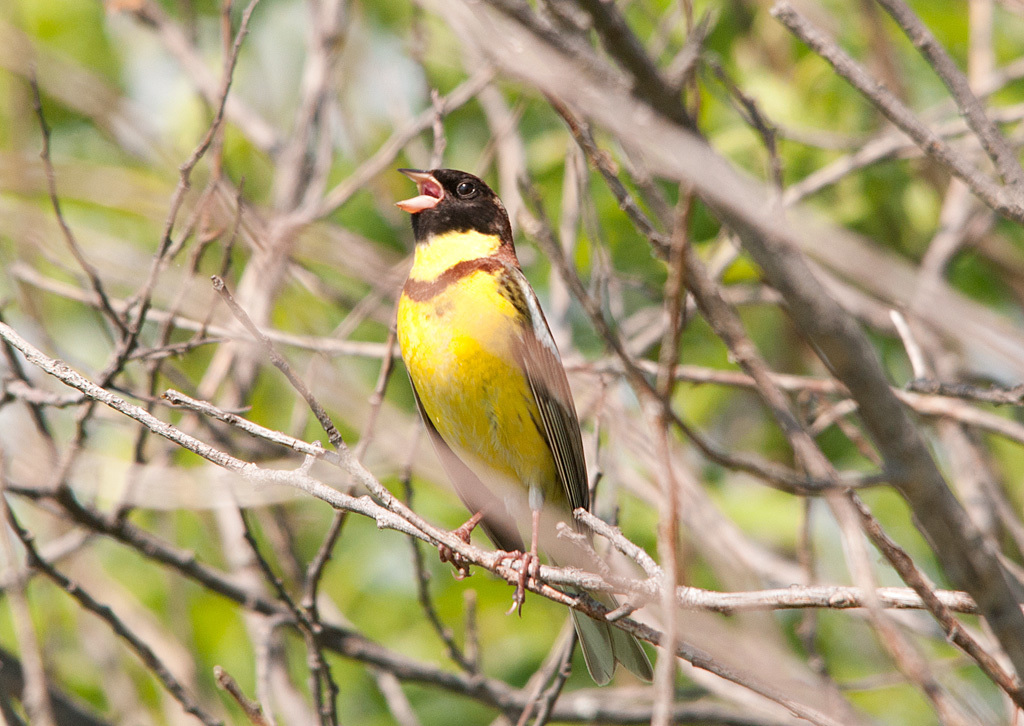

Representatives of the stakeholder agencies under the local level have underscored the urgent need of conservation of the threatened bird Bagale Bagedi, the yellow-breasted bunting.
It has been reclassified as critically endangered on the red list of threatened species by the International Union for Conservation of Nature (IUCN).
This was highlighted by ornithologists in a seminar on conservation of Bagale Bagedi organized by Pokhara Bird Society.
On the occasion, Anisha Rana, a researcher on Bagale Bagedi, said that this species of buntings migrate to Nepal from the Siberian region to escape the harsh winter cold and its population is nominal at the global and national level.
She shared that the yellow-breasted bunting s start arriving Nepal from Siberia towards mid-November and stay here in Nepal for about six months before returning back to Siberia.
These birds inhabit the wetlands near the lakes in Pokhara. Rana cited a survey report that showed the presence of 230 of this species of bird in Phewa Lake, 12 in Gunde Lake and 13 in Khaste Lake.
This bird was not seen in the six remaining lakes in Pokhara.
“This bird’s habitat is in the wetland, farmland and grassland. The bunting is similar to the size of sparrow and it is an attractive bird. Its average weight is 22 grams and is 14 centimetres to 16 centimetres long. It lives for seven years on an average,” informed another researcher Amrit Poudel.
It migrates to Nepal from Russia, Mongolia and China during the winter. Its decline has become extreme in the past decade, likely driven by excessive trapping at migration and wintering sites, according to the IUCN.
This bird is highly endangered globally as people kill it for its meat.
A working paper on the yellow-breasted buntings shared in the seminar states that 886 species of birds are recorded in Nepal while there are 11 thousand 225 species of birds in the world.
The Spiny Babbler is only found in Nepal. The protected bird species of Nepal are the Black Stork (Ciconia nigra), the White Stork (Ciconia ciconia), the Sarus Crane (Grus antigone), the Cheer Pheasant (Catreus wallichii), the Himalayan Monal/Impeyan Pheasant (Lophophorus impejanus), the Satyr Tragopan (Tragopan satyra), the Bengal Florican (Houbaropsis bengalensis) and the Lesser Florican (Sypheotides indicus).
Sixty-two species of birds arrive in Nepal during the summer while 152 species of birds migrate to Nepal during winter to escape cold.
Similarly, it is said that 50 species of birds arrive in Nepal on the way of migrating while 79 species are seen as wanderers.